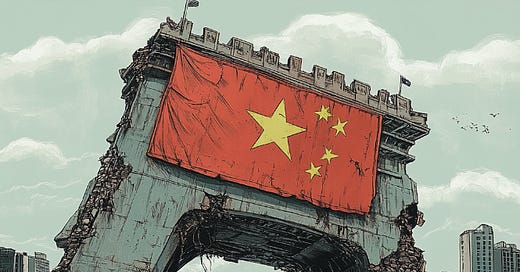China must "go deeper into the danger zone" of debt
Central bank uses window guidance to prevent stock market bubble. Li Qiang wants to spur vitality of Chinese private enterprise.
Keep reading with a 7-day free trial
Subscribe to China Banking News to keep reading this post and get 7 days of free access to the full post archives.




